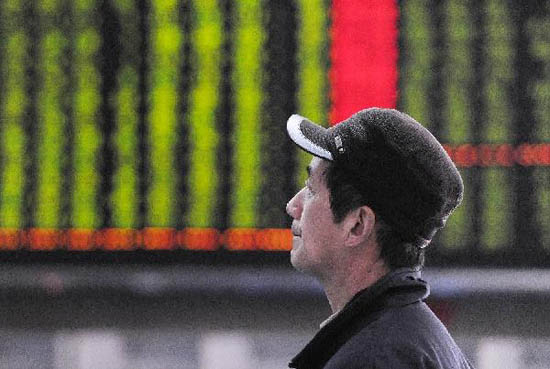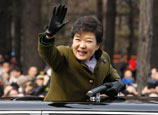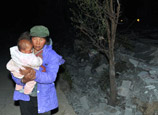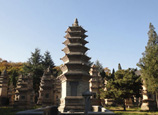
 |
| An investor looks at an electronic board showing stock price information at a trading hall in Shanghai, east China, March 4, 2013. Chinese shares dived on Monday over the government's latest measures to cool property market. The benchmark Shanghai Composite Index dropped 3.65 percent, or 86.10 points, to end at 2,273.40. The Shenzhen Component Index shed 5.29 percent, or 510.39 points, to end at 9,139.75. (Xinhua/Lai Xinlin) |
BEIJING, March 4 (Xinhua) -- Newly-issued property curbs to reduce housing speculation and cool the overheated property market have stirred fierce discussion online.
As of Monday, Sina Weibo users had posted more than 1.5 million comments to voice their recognition of, or concerns about, the policy that features a much higher tax on second-home transactions.
On March 1, the central government carried out an array of measures comprised of higher transaction duties, increased down payments and mortgage interest rates, and strict purchase qualifications to further tighten its grip on the real estate sector.
Of all the measures, a 20-percent individual income tax levied on second-home sale has attracted the most attention.
According to an online statement from the State Council, China's cabinet, homeowners who sell their homes have to pay an income tax as high as 20 percent of the profit they make on the transaction.
Prior to the new rules, the income tax on second-home transactions was 1 percent to 2 percent of the sale price.
The move will stifle speculative activities in the housing market, squeezing the unreasonable profits from the previously lucrative second-home sales and benefiting those who just bought a home in order to improve their living conditions, one Weibo user commented.
However, concerns were still raised that the high duties may result in another round of price hikes in the market.
Weibo user "Ning bo a cai" worried that the tax will force sellers to shift the additional costs to needy home buyers, adding to their burdens in obtaining a home, and push up home prices again.
Xu Chuanming, a manager of a real estate agency in east China's Shandong Province, said he expects the prices of re-sold homes to go up in the short term and prompt buyers to turn to newly-built houses.
His words were echoed by Jia Kang, director of the Institute for Fiscal Science Research, who says he believes home buyers who are discouraged by the second-home market will throng to offices selling new homes and may contribute to rising prices in some regions.
However, given all the advantages and disadvantages, the policy is necessary in the transitional period until a comprehensive and long-lasting mechanism is finally established, Jia said.
Zhang Guowei, director of the institute of economics under the Shangdong Academy of Social Sciences, suggested that authorities should also step up the construction of commodity housing, the prices of which are determined by the market, and secure the supply of government-subsidized, low-income housing to bring down home prices.
In addition, property taxes should be levied on the third homes of individual owners and the government should build online information systems on the personal home ownership of urban residents, said Pan Shiyi, chairman of the board of property developer SOHO China.
The Chinese government has strengthened its efforts to control the runaway real estate market since 2010 by implementing higher down payment ratios and restrictions on third-home purchases, which led to a brief cooling-off period before a recent rebound on the back of pro-growth measures.
In January, 53 major Chinese cities out of a statistical pool of 70 cities monitored by the National Bureau of Statistics saw home prices increase within 2.2 percent from a month earlier.
The growth rate was higher than that of December last year, when 54 cities recorded increases with a growth margin of no more than 1.2 percent.
















 The millionaire philanthropist promotes 'Clean Plate Campaign' at CPPCC session.
The millionaire philanthropist promotes 'Clean Plate Campaign' at CPPCC session.


![]()
